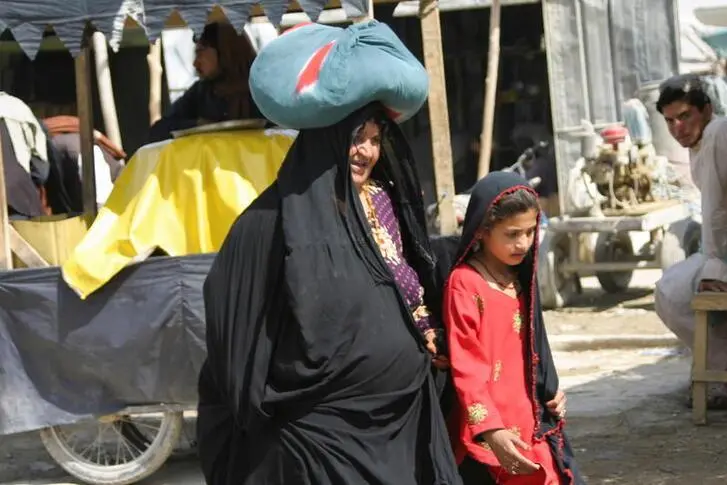PHOTO
Following the withdrawal of the US and NATO from Afghanistan, and the chaos left behind because of the Biden administration’s shockingly bad planning, the Islamist militants who ruled from 1996 until 2001 have returned to power.
Before we ask what the future may hold for the people of the new “Islamic Emirate of Afghanistan,” and how the international community should deal with the extremist government, we should look back to the period when this group ruled the country and remember the countless human rights breaches they committed.
The Taliban imposed strict rules according to their narrow interpretation of Shariah, banning television, music, photography, and children’s toys. Women were not allowed to go to school or work, or even visit a market without an adult male chaperone.
In 2001, Taliban leader Mullah Omar gave orders to his militants to blow up two giant 1,500-year-old Buddha statues carved into a mountain in the central Bamiyan province, on the ground that Islam prohibited idolatry. The destruction of the world’s tallest standing Buddhas prompted an international outcry and highlighted the group's intention to erase any signs of pre-Islamic history.
Twenty years later the Taliban’s ideology has not changed, nor has their interpretation of Shariah, and their desire to establish an Islamic emirate is becoming reality. Simply put, there is no reason for the world to open its arms and grant this regime the international legitimacy it craves unless it proves its commitment to preserving civil liberties, human rights, women's rights, and tolerance.
Predictably, the signs coming out of Kabul are not promising. During the Doha talks that preceded their return to power, the Taliban agreed to form an inclusive government to protect the rights of minorities. That did not happen. The interim administration named this month is headed by Mullah Mohammad Hasan Akhund, who was a close aide to the late Mullah Omar and, along with his two deputies, has been designated a terrorist by the UN Security Council. His all-male Cabinet includes members of the Haqqani network, a US- designated terrorist group, along with former Guantanamo Bay prisoners and others who are subject to UN sanctions because of their links to terrorism. Network leader Sirajuddin Haqqani is on the FBI’s most-wanted list, and the US State Department is offering a $10 million reward for information leading to his arrest. They may wish to check out the Interior Ministry in Kabul, where Haqqani is now in charge of the Afghan security and intelligence services.
Optimists and pro-radical Islamists have been trying to paint a rosy picture of the new “Islamic emirate,” by arguing that the Taliban’s new generation is more open to the world than Mullah Omar's generation, and echoing the group’s promises to be open to minorities, to pardon Afghans who worked with the West, to end violence, to cease their support for terrorist groups, and to rebuild the country after 20 years of war.
However, the reality on the ground says otherwise. The new government is exclusively Pashtun, there is no amnesty for people who supported the US efforts, women are forced to stay home again, and the scenes of horror, coercion, and repression are back, as if the past 20 years never happened.
There are immense challenges ahead if the new Taliban government is to provide its people with security, health services, and economic opportunities. That opens a door for the international community to play a role in protecting the people of Afghanistan, and holding the Taliban accountable for actions and decisions that harm innocent citizens.
Even if US President Joe Biden has decided to turn his back on the Afghan people, the Europeans should not follow his example by pretending that everything will be fine. It is also time for the UN to advance its important role in Afghanistan and set strict conditions for the Taliban in return for funds or humanitarian aid, which should go through international organizations instead of being handed to the government.
The Taliban came to power through a bloody coup d’etat, and should not be rewarded for it. The people of Afghanistan have been let down once already —they do not deserve to be left with misery and injustice.
- Dalia Al-Aqidi is a senior fellow at the Center for Security Policy. Twitter: @DaliaAlAqidi
Copyright: Arab News © 2021 All rights reserved. Provided by SyndiGate Media Inc. (Syndigate.info).





















